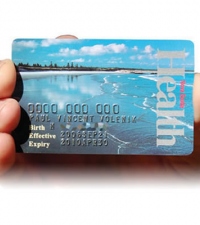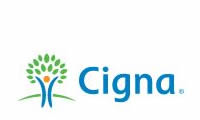Healthcare in Canada

Overview
Healthcare in Canada is delivered through a tax funded healthcare system, which is free at point of use. This universal healthcare system, established in 1961, has long been a source of pride for Canadians, and is an incentive for many expats looking to relocate to Canada.
All Canadian citizens and permanent residents are eligible for public health insurance. Canada’s healthcare program is administered provincially and territorially, and is composed of 13 interlocking public provincial and territorial health insurance plans, all of which share common features and standards.
The Government of Canada assures the quality of healthcare in Canada through federal standards.
In Canada the individual chooses a family physician, also known as a general practitioner or GP. The GP is your main point of contact with Canada’s healthcare system.
GPs refer patients to specialists at offices, hospitals or long-term care facilities. Community boards of trustees, voluntary organizations, or municipalities operate the majority of Canadian hospitals.
By the numbers
Canada spends 10.1% of its GDP on healthcare. The government pays for 70% of healthcare costs in Canada. Physicians in Canada make an estimated average of $202,000 annually.
The life expectancy in Canada is 81.3 years. Canada’s infant mortality rate is 4.5%. There are 2.2 physicians and 9 nurses per 1000 people in Canada.
Health Cards
Each provincial Ministry of Health issues a public health insurance card to each individual who enrolls in the public health insurance program. This health card entitles you to free health care at physician’s offices, specialists, hospitals, walk-in clinics, and emergency medical centers. All health card holders receive the same level of care.

You should apply for a health card as soon as you arrive in Canada. In some provinces, there is a three-month wait period for immigrants receiving a health card. During this period you should purchase temporary private health insurance.
How to apply for a health card
To apply for a health card contact your provincial Ministry of Health. Application forms can also be obtained from a doctor’s office, hospital, pharmacy, from your local Ministry of Health’s web site, or from an immigrant-serving organization.
When applying for a health card you must present a passport or birth certificate and a Confirmation of Permanent Residence (IMM 5292) or Permanent Residence Card.
A health card shows your name, birth date, address, and gender, as well as a unique identifying number. Health cards also indicate whether or not you wish to be an organ donor, and what level of donation you have agreed to.
You must carry the card with you and present it to receive health services.
Each member of a family must have a heath card to benefit from free health care. No health services will be offered without a health card issued for the individual being treated.
It is your responsibility to renew your health card when it expires (generally every 5 years) and to register for a new health card if you move to a different province or territory.
What is covered?
Basic healthcare is covered under public health insurance, including maternity and infertility services, mental health services, treatment and diagnosis of chronic and fatal diseases, in and out-patient services in hospital, and all services medically necessary for the purpose of maintaining health, preventing disease, or diagnosing or treating an injury, illness, or disability.
Some provinces and territories in Canada provide coverage to certain groups of people (e.g. seniors, children, social assistance recipients) for health services that are not generally covered under the publicly funded health care system, such as prescription drugs, dental care, vision care, ambulance services, medical equipment and appliances, independent living, and the services of chiropractors, podiatrists, etc.
Services not covered/Private Services
Private insurance is a minimal part of the overall healthcare system, and is mainly provided by employers. Private insurance is generally used for health related services that are not publicly funded, such as dentistry, optometry, audiology (e.g. hearing aids), ambulance services, and pharmaceuticals. 75% of Canadians have private health insurance, most of which is employer-provided, for these purposes.
In some provinces, private supplemental provincial health plans are available for those who desire private rooms if they are hospitalized.
Cosmetic surgery and some types of elective surgery are not considered essential care and are not covered under public health insurance. Such services can be paid out of pocket or through private insurers.
Pharmaceuticals
Pharmaceuticals are provided free of charge to the elderly. Otherwise, private employer-based health insurance covers all or a portion of medication costs, or patients may pay out of pocket.
Drug prices are negotiated with suppliers by the federal government to control costs.
Contraception
Contraception prescriptions are available from your GP. Some forms of contraception must be prescribed or administered by a gynecologist, whom your GP can refer you to.
Condoms and pregnancy tests are readily available to purchase at pharmacies.
There are no laws in Canada restricting abortions, which are considered safe, legal, insured and funded. Abortions are available at both hospitals and private clinics throughout Canada.
Optometry
Contact lens solution, cases, eye drops, and saline may be purchased at pharmacies. However, you may only purchase prescription contact lens and eyeglasses from an optometrist. Optometry products are not covered by public health insurance, but are covered by most private health insurance plans.
By Jess Gerrow, who traded city life in Canada for island life in the Mediterranean two years ago. She is a postgraduate marketing student, blogger, and freelance writer.
- My Life Abroad -
A selection of expat stories

"A fun compulsive read!"
J. Matcham, Amazon
"I strongly advise people ready to live abroad to read this book!"
Patrice, Amazon

 Pharmacies in Canada
Pharmacies in Canada APRIL Travel Insurance
APRIL Travel Insurance Cigna Global
Cigna Global William Russell
William Russell